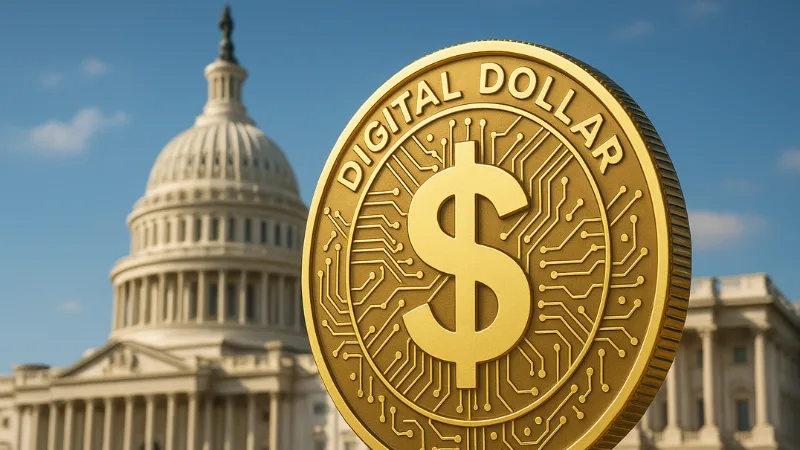Over the past few months, dozens of publicly traded companies with no previous connection to cryptocurrency have made headlines by loading up their balance sheets with digital assets—particularly Bitcoin. This trend dubbed the “Bitcoin treasury strategy,” is no longer the exclusive domain of crypto-native firms or tech pioneers. It’s now being adopted by marketing agencies, healthcare providers, renewable energy firms, and even pop culture media companies.
But while the headlines are flashy and the short-term share price gains are tempting, some experts are warning this approach could carry far more downside than many realize. The growing overlap between traditional equities and volatile digital assets could set the stage for amplified financial risk—not just for the companies involved but potentially for broader markets.
The Rise of the Bitcoin Treasury Strategy
The idea of using company cash to buy Bitcoin was popularized by Michael Saylor, the executive chairman of MicroStrategy, who transformed his software company into one of the world’s largest corporate holders of Bitcoin. His rationale? Fiat currencies are eroding in value due to inflation. At the same time, Bitcoin, with its capped supply, offers a potential hedge—and possibly long-term appreciation.
This strategy has gained momentum. According to data from BitcoinTreasuries.net, cited by Standard Chartered Bank, approximately 60 public companies—many of which have no crypto roots—have adopted or announced plans to adopt some form of a digital asset treasury policy. These include firms in marketing, healthcare, renewable energy, and even entertainment sectors.
Some aren’t stopping at Bitcoin. They’re also scooping up alternative cryptocurrencies, such as Ethereum (ETH), Solana (SOL), and Ripple’s XRP.
Why Are These Companies Doing It?
One reason is simple: the market is rewarding them for it—at least in the short term. Just announcing a plan to allocate capital into crypto can send a company’s stock soaring.
For example:
- K Wave Media, a Korean pop media company, saw its stock rocket more than 130% after unveiling plans to raise $500 million to buy Bitcoin.
- SolarBank, a Canadian renewable energy firm, rose more than 1% on the day it announced its Bitcoin strategy.
- SharpLink Gaming, however, experienced the opposite. Despite closing a $425 million private placement to become the largest public holder of Ether, its shares dropped 28%.
The inconsistency in market reaction highlights a core issue: enthusiasm for crypto plays is highly speculative and often tied to investor sentiment rather than business fundamentals.
Why This Trend Could Be Dangerous
Digital assets are notoriously volatile. Bitcoin alone has experienced multiple drawdowns of 50% or more over the last decade. Companies that invest heavily in these assets may enjoy euphoric gains when crypto prices are rising. Still, the downside can be brutal—and fast.
Elliot Chun, a partner at advisory firm Architect Partners, issued a blunt warning: “It is great on the way up, but when it is on the way down, it’s going to be violent.”
The danger compounds when companies borrow money to buy crypto. A sharp decline in Bitcoin’s price could not only tank their balance sheets but also force fire-sale liquidations, further exacerbating the downturn in crypto markets.
This domino effect could even ripple into traditional equities if enough publicly traded companies begin to act like crypto hedge funds.
The Trump Effect: A Political Tailwind
Another factor stoking this movement is the growing support for crypto from high-profile political figures. President Donald Trump, once a critic of Bitcoin has repositioned himself as one of the industry’s most vocal allies in Washington.
His family-controlled firm, Trump Media and Technology Group (DJT), recently raised $1.4 billion through a stock sale and another $1 billion via zero-coupon convertible debt—explicitly to finance Bitcoin purchases. The company has also filed paperwork to authorize up to $12 billion in future issuances for similar purposes.
Further signaling the administration’s pivot toward crypto, World Liberty Financial, a Trump family–backed venture, announced it would acquire “a substantial position” in a Trump-themed memecoin as part of its long-term treasury reserves.
This wave of political and financial support for Bitcoin has undoubtedly helped lift sentiment across the crypto space. But it also adds another layer of risk. If the political winds shift or the Trump administration pivots again, many of these companies could be left exposed.
$11.3 Billion and Counting
Since April alone, roughly $11.3 billion in announced capital has been committed to crypto treasury strategies, according to Architect Partners. This includes:
- Trump Media’s $2.5 billion plan to accumulate Bitcoin
- SharpLink Gaming’s $425 million Ether buy
- The launch of Twenty One Capital, a new Bitcoin-focused company backed by Tether and SoftBank
These moves reflect growing confidence in crypto’s future role in corporate finance—but also suggest many firms are entering the market at or near its current highs.
Geoff Kendrick, head of digital assets research at Standard Chartered, warns that if Bitcoin falls just 15% from its current price of $106,000 to around $90,000, about 30 public companies would be holding underwater positions. That could trigger panic selling.
Momentum or Madness?
For companies genuinely committed to long-term crypto adoption, this strategy may be effective—mainly if led by credible figures with industry expertise.
Brett Knoblauch, head of digital asset research at Cantor Fitzgerald, differentiates between “flywheel” firms like MicroStrategy (Strategy) and newcomers chasing hype. “With interest comes trading volume, with trading volume comes the ability to raise money, with the ability to raise money comes the ability to buy more bitcoin,” he explained. “There’s a lot of zombie companies that might be buying bitcoin…but it is going to be tough without the flywheel.”
In other words, the winners in this space will likely be those with a clear roadmap, experienced leadership, and access to capital—not those making opportunistic pivots in hopes of a short-term stock boost.
What This Means for Investors
For retail investors, this trend presents a double-edged sword.
Pros:
- Early backers of companies that successfully implement crypto strategies could see explosive returns.
- A broader institutional embrace of Bitcoin could help normalize and stabilize its long-term valuation.
Cons:
- Stocks could become tethered to crypto market swings, introducing volatility into portfolios that may otherwise seem “safe.”
- Companies without experience in cryptocurrency may mismanage risk, leading to significant losses or even bankruptcy during downturns.
- Regulatory scrutiny could intensify, especially if firms use crypto holdings to inflate valuations without delivering underlying growth.
Investors should also keep a close eye on liquidity. Many of these companies are still micro- or small-cap stocks. Even modest shifts in trading volume can cause dramatic swings in share price—particularly in the event of panic selling.
Final Thoughts
The growing corporate adoption of Bitcoin and other digital assets is a remarkable financial experiment unfolding in real-time. It could mark the beginning of a new era in treasury management—or it could serve as a cautionary tale of how speculation can blindside even the most optimistic investors.
Either way, the “Bitcoin treasury strategy” is a trend that no serious market observer can afford to ignore. With more companies announcing crypto purchases by the week and political backing from the highest levels of government, the stakes are only getting higher.
Whether this is the dawn of a Bitcoin-backed corporate world or a crypto bubble being inflated by boardrooms, one thing is sure: the convergence of Wall Street and blockchain is accelerating—and it’s reshaping the financial landscape with every billion-dollar bet.




